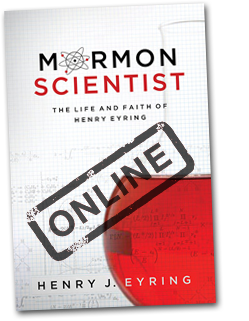Featured Memory
Henry Eyring and the Nobel Prize
I’ve known for much of my life that people thought Henry Eyring was deprived of the Nobel Prize because of his religous beliefs. The archivists at the Nobel committee’s own web site seem to be flummoxed by the question of why Erying did not recieve the prize. They have explained the apparent oversight this way:
“Nobel’s will laid down that the prize should be awarded for work done during the preceding year, but in the statutes governing the committee work this has been interpreted to mean the most recent results, or for older work provided its significance has only recently been demonstrated. It was undoubtedly this rule that excluded Stanislao Cannizzaro from receiving one of the first Nobel Prizes, since his work on drawing up a reliable table of atomic weights, helping to establish the periodic system, was done in the middle of the 19th century. A more recent example is Henry Eyring, whose brilliant theory for the rates of chemical reactions, published in 1935, was apparently not understood by members of the Nobel Committee until much later. As a compensation the Royal Swedish Academy of Sciences gave him, in 1977, its highest honor, other than the Nobel Prize, the Berzelius Medal in gold.”
